Verizon iPhone launch is a bust, as hordes of Apple Store employees wait for no one to come
Gartner: Android smartphone sales surged 888.8% in 2010

In an unexpected turn, Android did better by Gartner's measure than other talliers' reckonings, and the numbers have more punch. Unlike other analyst firms, which measure shipments to carriers and dealers -- what's sometimes called "sales-in" -- Gartner measures "sales-out" to buyers. Manufacturers shipped 67.2 million Android smartphones last year, up from 6.8 million in 2009. That works out to an average 184,000 Android smartphones sold per day. By comparison, Apple sold an average 127,000 iOS smartphones a day, or 46.6 million for the year.
Android's smartphone OS market share rose to 22.7 percent, putting it in second place, up from 3.9 percent in 2009. Android benefitted from strong manufacturer support. Among the top 10 global handset manufacturers, seven ship Android phones -- second-ranked Samsung and third-ranked LG among them. However, Samsung and LG both lost global handset market share for all 2010.
Satya Nadella replaces Bob Muglia as president of Microsoft's Server and Tools Business

Today, Microsoft began the big, rumored management shakeup with the appointment of Satya Nadella as president of the Server and Tools Business. Supposedly, Microsoft CEO Steve Ballmer is putting more engineering-focused employees in key, management positions. Nadella replaces Bob Muglia, who essentially was fired last month by Ballmer; Muglia will remain during a transition period through summer.
Like Muglia, Nadella is a long-time Microsoft employee, since 1992, and he more recently oversaw engineering efforts within Microsoft's perennially, money-losing Online Services Business unit. It's an interesting move, to sack the leader who helped build up the highly successful and profitable Server and Tools Business unit and replace him with someone working, since 2007, in a flailing group. OSB has been flapping like a chicken trying to fly above Google for years. Microsoft lags far behind its rival in search share, and the Online Services Business loses money quarter after quarter. It's a money pit.
The PC era is over

Yesterday, I chuckled reading the many posts about IDC fourth-quarter smartphone shipment data. As many writers observed, manufacturers shipped more smartphones than PCs -- 100.9 million versus 92.1 million, respectively. This turnabout was inevitable, and it is more than hugely symbolic. The cloud-connected mobile device era has dawned.
Frankly, I shouldn't need to declare that the PC era is over, but I expect sharp criticism from many Betanews readers in comments. I say to you: End the denial, and look ahead rather than behind. The PC's decline is inevitable, as was the mainframe's. It was never a matter of if but when, and it's a process still underway that will take years to complete.
Believe the rumors: Apple will soon stop selling software at its retail stores

In December I asked: "Should Apple stop selling software in its retail stores?" I reasoned that the Mac App Store greatly diminished the need for Apple retail stores to carry boxed software, which takes up valuable shelf space. In early January, Apple released the Mac App Store, which is part of Mac OS X 10.6 (aka Snow Leopard). I expected Apple would soon go all digital, removing packaged software from its stores. Late last night, MacRumors claimed Apple is preparing to do just that: "Based on what we've heard from our sources, however, Apple is planning on making the move to all digital sooner than expected at their retail stores. Apple is working towards eliminating boxed software and presumably focusing sales through the Mac App Store."
I can't attest whether or not the rumor is true, or vouch for MacRumors sourcing, but it's what I expected Apple to do, which is why I asked the question. Not everyone agrees this is the right move. In December, Stephen Baker, NPD's vice president of industry analysis told me that "only 43 percent of online software buyers want a digital download only; 30 percent want a box and 22 percent want a download and a box." He didn't see how Apple could meet consumer preferences by going digital download only. I see it differently: 43 percent represents a helluva lot of people, and right now Apple only needs to be concerned with Mac owners.
Steve Ballmer's change of heart is touching, but it's five years too late
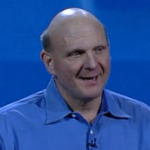
S-o-o-o-o, if the unnamed sources cited by Bloomberg are to be believed, Microsoft's CEO wants to shakeup management by shaking out the sales and marketing guys and bringing in more technically-oriented leadership. Oh yeah? Then why has Microsoft lost so many technically-savvy managers over the past 12 months or so -- including Robbie Bach, Bob Muglia and Ray Ozzie, all of which got Steve Ballmer's boot out the door? Then there is Ballmer, who started this marketing management madness in a September 2005 reorganization. That's right, Ballmer is responsible for placing so many sales and marketing execs in key management positions and allowing them to appoint others.
According to the Bloomberg story, by reporter Dina Bass, Ballmer "plans to extend a management shake-up aimed at adding senior product executives with an engineering background." Bass is a veteran reporter who has covered Microsoft for many years, and she typically has impeccable sourcing. Her report is believable. The questions: Why? Why now?
Gartner: More than half of IT organizations deploy open-source software

Uh-oh, Microsoft, perhaps it's time for a new "Get the Facts" campaign. You told the world that open-source software really wasn't cheaper or as easy to manage as commercial products. Well, only about half of IT organizations believed you.
Today, Gartner released findings that more than one-half of IT organizations use open-source software, based on a survey of 547 IT organizations from 11 countries. To my surprise, the survey data isn't exactly fresh, having been conducted in July and August 2010. Well, it's not like most companies change platforms very often, so perhaps six months is fresh enough. Gartner refers to open-source software as OSS.
IDC: Samsung smartphone shipments grew 439% in Q4 2010

I'm in a contrary mood. While everyone else is obsessing about iPhone and Research in Motion smartphone shipments, I'm singling out HTC and Samsung, which combined fourth-quarter performance foreshadows changes coming to the global smartphone market. Earlier today, IDC released Q4 and full-year 2010 smartphone shipments. Sidebar: For those folks still obsessing about Strategy Analytics tablet data, IDC likewise measures shipments into the channel. For actual sales -- that is to customers -- Gartner will soon deliver them.
As others have reported, Apple nudged out RIM for second place in global smartphone share for fourth quarter, but not the year. While Apple shipments rose 86.2 percent, market share was a flat 16.1 percent in Q4 and the year-ago quarter. This trend I have repeatedly observed: ComScore smartphone shipment data released today and in January; Nielsen data released last week and early January; Canalys data released eight days ago and mid January. Apple is shipping a heck of a lot of phones, but the big growth and share gains belong to Android OS and its supporting manufacturers.
This is getting boring -- iPhone US smartphone share remains flat while Android soars
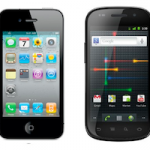
Man, Verizon can't ship iPhones fast enough. Apple's smartphone wheezed into the holidays eating Android's dust, according to data released today by ComScore. Only Verizon can save iPhone now, but ComScore won't record those sales, which started as preorders last week, until March.
The trend is so consistent, it's getting boring to report: Apple continued its flat growth for the three-month period ending in December. Apple's smartphone share rose slightly, from 24.3 percent to 25 percent. Meanwhile, Android's US smartphone market share rose from 21.4 percent to 28.7 percent. The data is fairly consistent with December market share and growth numbers released last week by Nielsen: Flat iOS market share growth and Android rapidly rising -- 43 percent of recent purchasers chose a smartphone running Android in December. However, Nielsen put iPhone 1 percentage point ahead of Android handsets, based on operating systems. ComScore uses US mobile subscribers to measure smartphone platform market share.
Gadget geeks say 'No way' to $800 Motorola XOOM tablet pricing

This morning I asked: "Would you pay 800 bucks for the Motorola XOOM?" The answer is a resounding "No fraking way, Jose!" A leaked Best Buy advert suggets the Android 3.0 (e.g., Honeycomb) tablet will be available on February 24 for $799.99. The price sure surprised me and incensed some of you. All I can say: The pricing won't cause Apple CEO Steve Jobs to lose any sleep over potential iPad competition. But Mobile World Congress convenes in one week, and Samsung already has hinted that the Galaxy Tab's successor will be announced there. So Jobs shouldn't blissfully dream yet.
"Never in a million years," writes ezryder in Betanews comments. "The right price, as noted by others, is about $300-$400. No contract. WiFi only. Because really, do you need the damn thing fully connected all the time? And even if you do, turn your phone into a hotspot and WiFi tether the thing to it. The best value right now, by far, is a rooted Color Nook -- $250, and it has a screen with the same res as the iPad, only it's 7 inches instead of 9.7 inches."
Would you pay 800 bucks for the Motorola XOOM?
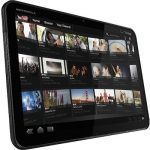
Motorola, or is that Best Buy, sure knows how to dampen enthusiasm for what should otherwise be the hottest Android tablet and iPad's strongest competitor (that is, ahead of Samsung announcing the Galaxy Tab successor). I'm not paying $799.99 for the Moto XOOM? Would you? Oh, yeah, there's fine print: One month Verizon 3G data to, get this, activate the WiFi.
In business, pricing and perception are everything. Little does more to create unwanted negative perceptions than high pricing. In mass-marketing there are pricing thresholds that trigger sales, and these are particularly important when bringing new products to market against a successful and dominant competitor. For digital singles, 99 cents was it. For Amazon's Kindle: $139.
It's Super Bowl Sunday, do you know who's watching you watch the game?

The Super Bowl is as much about advertising, in some respects more, than the actual game. Advertisers are paying as much as $3 million a commercial spot, which is perplexing in this era of targeted advertising on the web. Super Bowl ads hit a mass of people, more than 100 million expected for today's Green Bay Packers and Pittsburgh Steelers face off, but advertisers don't know who you are. Or do they? It's a question I've been asking, following several unusual events occurring over the past 10 days or so. I'm talking about your privacy and how much less of it you have this Super Bowl Sunday than the last one and how much more advertisers will know about you by next year's playoff.
I've been thinking lots more about advertising and privacy this week because of Google allegations that Microsoft copied search results and because of a personal experience with targeted advertising. I'll start with the latter. Early last week, I saw banner ads on several tech sites for two different sites where I occasionally buy WordPress themes and cell phones. A few days before seeing the splash banners, I visited both sites -- the one looking for new WordPress themes and the other to buy a case for my Google-branded, Samsung-manufactured Nexus S smartphone.
Nokia's experimental 'Bubbles' lets Symbian^3 users pop their way through common tasks

Nokia Labs today revealed a new user interface motif called "Bubbles." It's one the many odd little research projects Nokia pops out. Some of them become real products, while many others do not. But I often see lots of creativity and invention in what these Nokia researchers dream up.
Nokia Bubbles is just that -- bubbles that move around the handset's display. They're essentially shortcuts to other functions, such as unlocking the phone, viewing missed calls, accessing e-mail or viewing text messages.
Does a Microsoft-Nokia mashup make sense, or are its supporters just nuts?
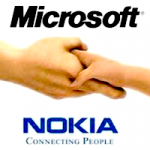
I disagree with TechFlash's Todd Bishop, who today writes that a "wholesale shift by Nokia to Windows Phone 7 from Symbian would be a huge change, similar in magnitude to, say, Apple adopting Intel chips." Oh, no, it would be much bigger than that and way riskier. [Editor's Note: Quote corrected for transposed "by" and "to"; I make that kind of mistake all the time.]
Bishop responds to yet another call for Nokia to enter an unholy operating system alliance with Microsoft or to merge -- this one from Berenberg Bank analyst Adnaan Ahmad. As the TechFlash managing editor rightly observes: "Ever since he went to Nokia, [Stephen] Elop's connection to Microsoft has been viewed as a possible prelude to a tighter relationship." Elop left Microsoft in September 2010, as president of the Business division, to become Nokia's chief executive. As I expressed nearly six months ago, Elop wouldn't be my first choice to run Nokia.
Samsung Galaxy Tab customers are satisfied enough -- return rate less than 2%
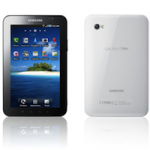
There's a reason why Betanews didn't report the ridiculous research report claiming that the return rate on Samsung Galaxy Tab tablets was overly high: It wasn't believable. Finally, Samsung has stepped up with its formal denial.
Samsung posted the statement yesterday (yeah, I missed it; I was celebrating the Lunar New Year on Seoul time): "The return rate of the Galaxy Tab in the US as claimed by an North American market research firm is incorrect. According to Samsung Electronics Mobile Communications Business the return rate is below 2 percent." Now how's that for terse and to the point?
Joe's Bio
Joe Wilcox is BetaNews executive editor. His motto: Change the rules. Joe is a former CNET News staff writer, JupiterResearch senior analyst, and Ziff Davis Enterprise Microsoft Watch editor.
Ethics Statement© 1998-2025 BetaNews, Inc. All Rights Reserved. Privacy Policy - Cookie Policy.

